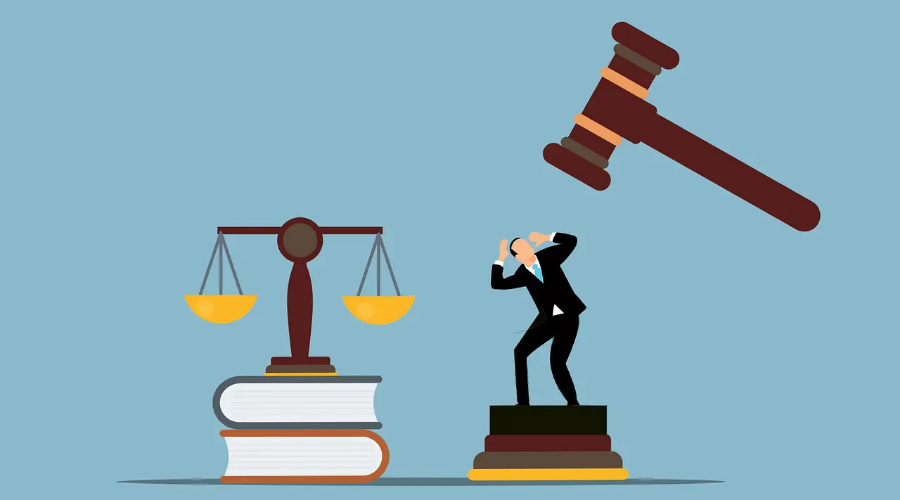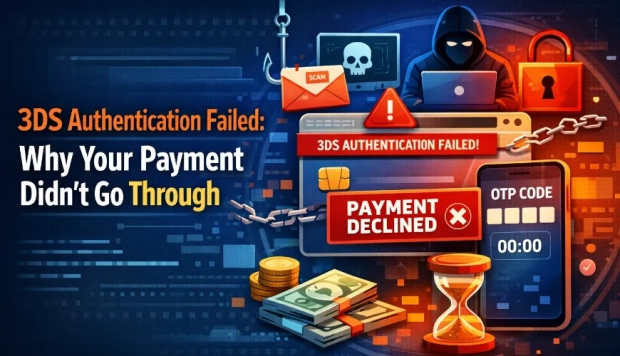Common Email Mistakes That Can Jeopardize Legal Cases

Email has grown into an important way to talk to people in personal, work, and legal situations. But a poorly written or misplaced email can get you into legal trouble. Careless emailing leads to many lawsuits, disagreements, and broken contracts, so it's important to know how legal risks can come from normal writing.
1. Why Email Mistakes Can Jeopardize Legal Cases
Email communications are increasingly used as evidence in legal disputes, contract negotiations, and corporate lawsuits. Courts and legal teams analyze email threads to determine intent, liability, and compliance in complex cases.
Here's why improper emails can lead to legal trouble:
✔ Emails can be legally binding: In many places, emails can be seen as binding agreements if they include key contract aspects.
✔ They lack verbal context: Emails can be misunderstood more easily than face-to-face conversations.
✔ Digital records are permanent: Even deleted emails can be retrieved and used in court.
✔ Legal teams use them as evidence: Everything you write can be subject to scrutiny in legal disputes.
Now that you know this, let's look at the most common email mistakes that could get you or your business in trouble with the law. Today, even a legal AI tool for lawyers like those developed by Digest AI, can help analyze email evidence and cross-reference it with case law summaries for better legal insight and precedent research.
2. Common Email Mistakes That Can Cause Legal Troubles
A. Using Vague or Ambiguous Language
Many legal disputes arise from unclear wording in email communications. Ambiguity can cause misunderstandings, contractual issues, or unintended commitments.
❌ Example of an unclear email:
"This should be fine. Let me know if you see any issues."
✔ Best Practice:
Be explicit about terms, conditions, and expectations in every legal or business-related email.
B. Accidentally Creating a Legally Binding Agreement
Did you know an informal email exchange can sometimes form a binding contract? If an email includes clear terms and an acceptance, it may be considered enforceable in certain cases.
❌ Risk:
A salesperson or business manager sending an email confirming a deal without proper documentation might unintentionally create a contract.
✔ Best Practice:
To avoid accidental commitments, always use a formal contract or build an online form with Loio for legal agreements instead of relying on email conversations. Clearly state in your email, "This email does not constitute a legally binding agreement. A formal contract will follow." Platforms like Lawrina provide legally vetted templates to guarantee your contracts are structured properly and fully enforceable, protecting your business from unintended obligations.
C. Failing to Preserve Important Emails
Some people believe deleting emails removes them permanently. However, courts can retrieve deleted emails during disputes. If you fail to retain critical business communication, you could weaken your legal case.
✔ Best Practice:
- Keep records of essential emails regarding contracts, agreements, and disputes.
- Set up email retention policies to save legally relevant exchanges.
D. Using Personal Email for Professional Matters
Sending business or legal-related emails from a personal account can blur lines of responsibility and increase security risks. It also complicates information retrieval if legal teams need to access the records.
❌ Example:
Discussing contract negotiations, HR disputes, or legal agreements via email.
✔ Best Practice:
Always use your official business or legal email system to ensure accountability, compliance, and data security.
E. Forwarding or Copying Sensitive Legal Emails
Many legal or corporate disputes involve unauthorized email forwarding, resulting in breaches of confidentiality agreements.
✔ Best Practice:
- Verify recipients before forwarding sensitive emails.
- Mark legal communication as privileged and confidential where necessary.
F. Poor Email Etiquette in Business and Legal Communication
Emails lacking professionalism, clarity, or formality can be misinterpreted or used as evidence against you.
❌ Example of a risky response:
"I guess we could make it work, but I'd rather not deal with this headache."
✔ Best Practice:
- Write in a neutral, professional tone.
- Avoid sarcasm, jokes, or emotionally charged language.
3. Protect Yourself: Legal Email Best Practices
To minimize legal risks, follow these proven email practices:
A. Use Clear and Direct Language
- Be precise about what is agreed upon in any contractual communication.
- If unsure, state, "This discussion is not legally binding until formally agreed upon."
B. Secure Confidential Information
- Encrypt legal documents or use secured platforms for sensitive legal discussions.
- Do not discuss sensitive legal matters via email unless necessary.
C. Use Legal Agreements Instead of Email Exchanges
- Instead of agreeing to contractual terms in back-and-forth emails, use a standardized contract form or an online form to formalize agreements legally.
D. Verify Recipients Before Sending
- Double-check the recipient list using autofill carefully to prevent sensitive information from being sent to the wrong person.
E. Keep a Record of All Legal Correspondence
- Use email archiving systems or organize emails by case or project to retain important details.
4. Managing Email-Related Disputes and Legal Issues
If an email-related legal dispute arises, follow these steps:
✔ Stop unnecessary communication: Do not send additional unverified emails regarding the case.
✔ Review past emails: Examine email threads to identify risks or liabilities.
✔ Consult with legal professionals: Involve a lawyer for email-related disputes if needed.
✔ Provide authentic documentation: Retain email chains for legal examination if required in court.
Being proactive prevents miscommunication and lessens legal risks, protecting your personal and professional communications.
5. Takeaways: Avoiding Common Email Pitfalls
The key takeaway is simple: Write every email as if it could be used in a courtroom.
Top Dos & Don'ts of Legal Email Writing:
✅ Do:
- Keep email professional, neutral, and transparent.
- Use official legal documents for agreements instead of informal email terms.
- Verify recipients and attachments before sending.
- Archive important emails properly.
- When discussing legal matters, ensure you use a secure, official channel.
❌ Don't:
- Write emotional, vague, or ambiguous language in legal discussions.
- Use personal emails or unsecured accounts for legal work.
- Assume an email cannot be retrieved after deletion.
- Forward confidential information without necessary precautions.
6. Final Thoughts: Protect Your Legal Communications
How emails are treated can make them either useful for lawyers or a possible liability. Making sure that email contact is clear, safe, and professional lowers the chances of misunderstandings, contract disputes, and legal trouble.
The safest approach is to rely on formal legal agreements instead of conducting business over email. Use a professional online form to maintain consistency and security in legally binding contracts.
By following these best practices, you can protect your legal interests, minimize risks, and build trust in every professional interaction.




